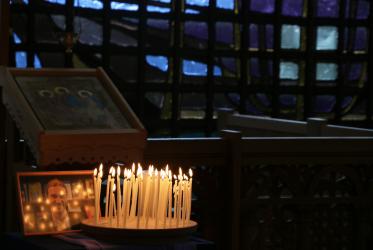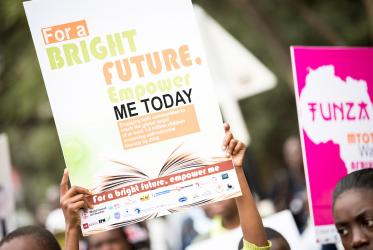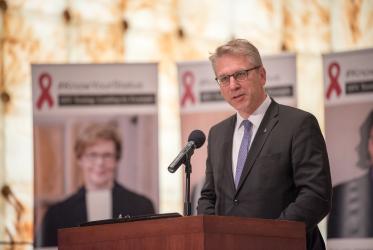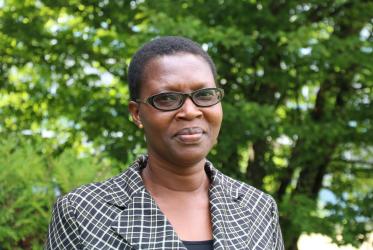Displaying 21 - 40 of 81
04 June 2019
A faith-based, holistic approach to HIV and AIDS-care
13 March 2019
Faith and HIV treatment go hand in hand
06 March 2019
Turning mercy and compassion into action
04 March 2019
On the journey to HIV – bridging gaps, debunking myths
21 February 2019
Assisi: On the ecumenical pilgrimage into a more sustainable future
03 September 2018
What difference does dressing in black make?
02 August 2018
Working toward an AIDS-free generation
26 July 2018
Congolese churches respond to Ebola outbreak
01 June 2018
Conversation on HIV “must continue,” Faith Networking Zone shows
07 December 2017
Emily Welty: tide of hope for a world free from nuclear weapons
19 September 2017
“It will take faith to get down to business, to overcome HIV and AIDS”
13 September 2017
Religion meets science in forum at WCC
09 August 2017
A communicator on the move
10 July 2017

















